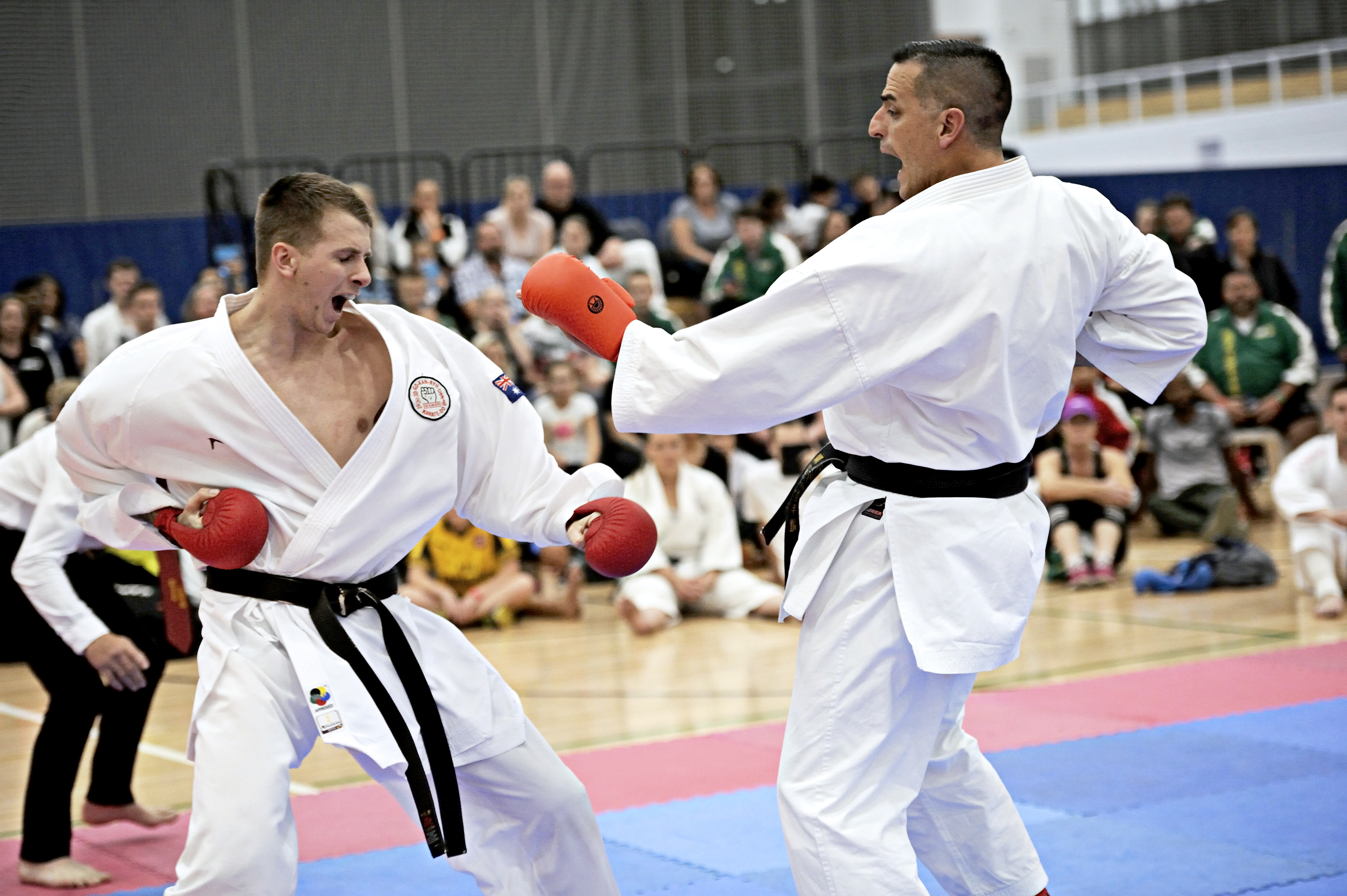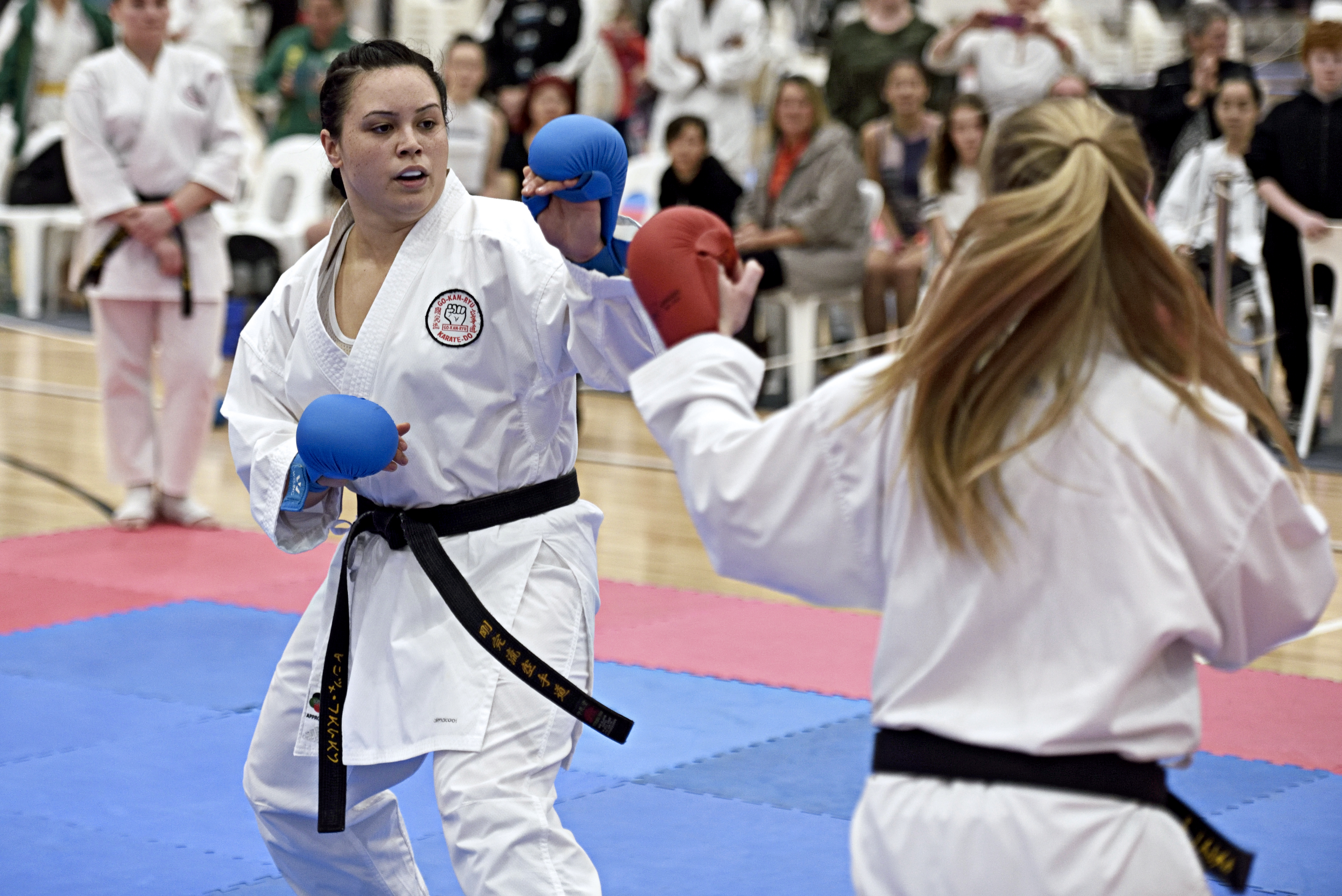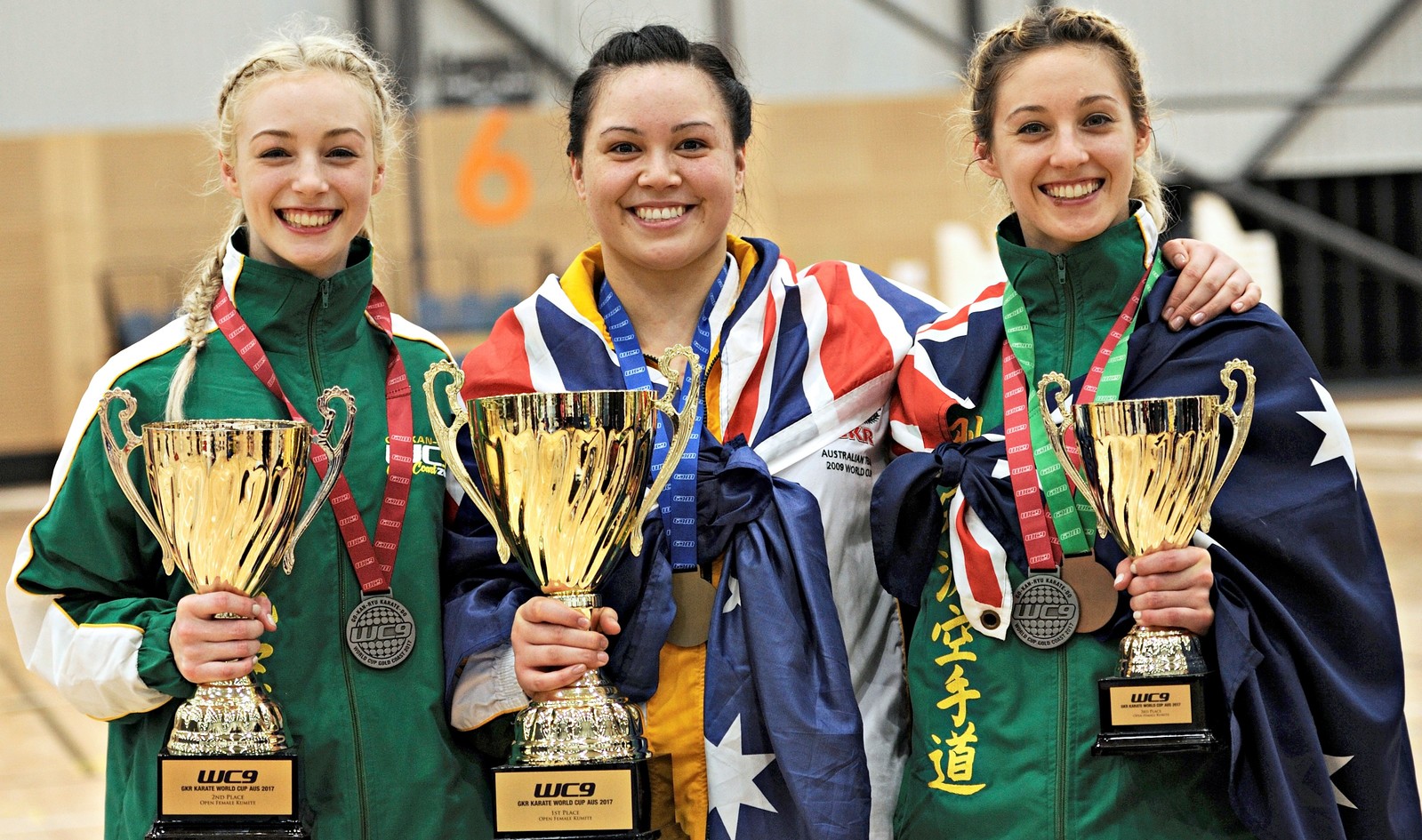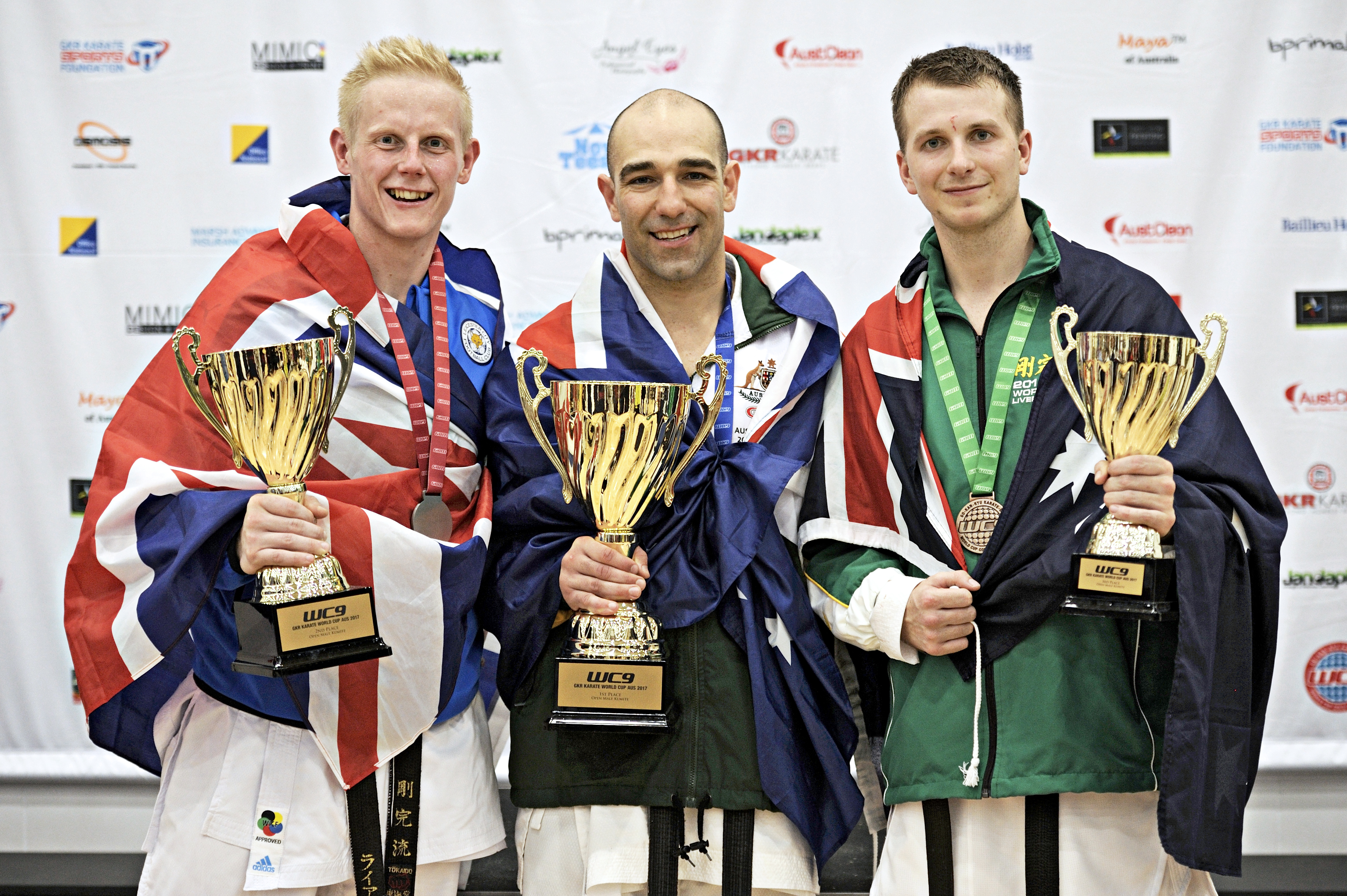Training for Champions: Mental Conditioning
Over the years, I have seen far too many physically conditioned fighters fall short due to a lack of mental conditioning. Now when I say mental conditioning, what is it specifically I am talking about?
The following are key areas where people’s poorly conditioned minds let them down.
- The ability to think clearly when the body is tired.
- The ability to think clearly when the body is the pain
- The ability to remain focused for the entire length of a bout.
- The ability to control emotions such as frustration, anger, being overwhelmed, impatience, etc.
Any person who lacks the right mental capacity to handle these situations will unlikely ever go onto becoming a tournament champion, as each of these situations is likely to occur at some time during your tournament campaign. So let me go into detail with each.
1) The Ability To Think Clearly When The Body Is Tired
So what is thinking clearly?
Thinking clearly implies that at all times you are aware of every detail regarding yourself and your opponent in the ring. You are aware of your stance and guard as well as your opponent’s stance and guard, favourite techniques, strengths, weaknesses etc. You notice small telegraphed movements and are able to spot momentary lapses in their concentration, balance, guard etc.
When you are thinking clearly you react quickly and with less telegraphing.
Far too often when a person is tired they make poor technique selections. When they are tired they play the hope game; they try a low percentage technique or attack from a poor distance. This leads to being countered or picked off.
When you are physically tired, your reaction time is slow. Not so much because of your actual physical fatigue but all too often because you are focusing on your physical fatigue. Because of this, any champion will know the importance of remaining focused when they are tired.
The following are exercises designed to keep you focused when you are tired.
Exercise 1. Sprint Training Crossed With Sparring
There is no better way to get the body tired than sprinting as lactic acid filters through the entire body. Often people sprint train to increase their leg speed and strength but they don’t work their concentration to go along with it.
Find a sparring partner who can test out your skills. Ask them to continue with their intensity regardless of how tired you may get.
Start sparring close to one end of the hall.
Every thirty seconds your partner should call out “run”.
On this command you sprint to the other end of the hall and sprint back. While you are sprinting, your partner rests and may even drink.
As soon as you are back you resume sparring.
You will discover after 4 or 5 sprints that your arms, legs and lungs start feeling very heavy. The challenge is for your partner to keep pushing you regardless. They may also motivate you a little by urging you on (but eventually this has to come from within as in the ring you are alone).
Do this 10 times. This results in exactly 300 seconds of sparring (5 minutes) and 10 short sprints. Your goal is to not only push yourself but primarily, to remain focused the entire time. If you catch yourself concentrating on your tired body you must switch the focus back to the job at hand…winning!
Don’t learn that your guard has dropped by getting hit. Learn because you are aware and focused the entire time. Basically, learn before you are hit – prevention is better than cure!
Exercise 2. Developing Focus Through Kata Training
Most people have numerous kata they practice. Here is how this exercise works.
You will be doing this exercise for 10 minutes.
As you go through it, you are only allowed to focus on the exact technique you are currently doing. As soon as it is over, you must forget it and focus on the next.
You are not allowed to think about anything else… nothing!
Start your kata and each time you catch your mind wandering from the technique, stop and start again. Your goal is to finish it completely then go onto a new form.
Remember, you cannot think about anything else. Examples of this are:
You might say to yourself “I’m doing well, I didn’t think I would get this far first go”. Start again!
You might ask yourself “did I just get sidetracked? No I don’t think I did”. Start again!
You might say to yourself “That was a poor stance” Start again!
Nothing else can be in your mind but the exact detail of the move you are performing at the current time.
There is no one to police this so you have to be honest with yourself. As the time moves on and your body starts to tire it becomes harder and harder to remain focused on the technique alone…but you must be vigilant. This is one of the best ways to condition your powers of concentration. Try it; it is also good fun.
2) The Ability To Think Clearly When The Body Is In Pain
When I say this I am not talking about the pain of absolute exhaustion. I am talking about pain in its most literal sense. Sometimes you might take a knock on the nose that leaves your eyes watering. You might take a blow to the ribs that was a little too hard and leaves a little reminder (perhaps short, sharp pains) every time you move. You might have a sore knee, a sore toe or a pulled hamstring.
Very few people can go through a year of tournaments without times where they are fighting a little (or very) sore.
Going into a tournament carrying an injury or soreness often doesn’t pose as much of a problem as getting an injury and then having to fight straight afterward.
It is a common sight to see a person get hit or injured and then lose the bout. They will often blame the injury afterwards, “Yeah my ribs were killing me”. In truth, it was not so much their injury that cost them the bout; it was their attention and focus on the injury. Had they only focused on their job of winning, then it may have been a very different story.
I liken it to a real-life confrontation. If you are hit from behind and turn around to see an attacker; it is most likely your thoughts will forget the sore head and focus on self-preservation. You will focus on winning….nothing else! Yet in the ring, it is often very different. The question is… why?
Mike Tyson once said, “everyone has a plan until they get hit”. This is very true in not only boxing but also life. The moment we experience some pain or adversity, our clear thinking is replaced by frustration, self-doubt, and pain.
Just Get The Next Point
When we are injured, it tends to become the forefront of our focus and the belief in your ability to win therefore diminishes. So rather than thinking big picture start with something small… just the next point. Put all your focus and effort into one tiny point. Surely you can do that! It becomes your new dominating thought and now your mind is on the job at hand – not your injury. It is only one point, but when you win that point what happens? Your confidence rises and the self-belief in your ability to win the entire bout returns. After this point, you simply tell yourself the same thing, “Just win the next point”.
Next time you are injured in class just tell yourself, I am going to get the next point, no matter what. You will discover that the pain completely goes away because you are 100% focused on your mission.
“I Love It”
I was taught this years ago. Every time I was injured I had to say out loud with conviction “I love it”. You might think it bizarre but it works. If I kick my toe or bump my knee on my coffee table I call out “I love it”. If I get hit and winded during sparring, I try to force out the words between breaths “I love it”.
Now I don’t really love it. But it does two things. Firstly it immediately changes my state. Rather than focusing on a negative “Oh my, I’ve been hit” I focus on something positive, the fact that it cannot beat me, in fact I love it. Secondly it makes me laugh. You hit your knee on a coffee table and normally you are mad at yourself and some profanities come out. Instead you say “I love it” and it turns into something humorous. Again, it sounds crazy, but if you try it, you will find it works.

3) The Ability To Remain Focused For The Entire Length Of A Bout
The main word that pops into my mind with the statement above is “consistency”. In any sport you might watch or partake in, the ability to stay focused on the entire game, match or bout is vital. Soccer and football are common examples. A team can be focused for 95% of the game, but the 5% where they lacked can cost them the game. In the interview after the game, you might hear a coach commenting on something like this…”If we are to be a threat on the premiership this season we have to learn to play the whole 90 minutes”. Tennis and golf are even tougher. A player can be on song all day and one poorly focused game or hole and suddenly they find themselves a service break down, or shooting a double bogie.
Yes, there is no doubt about it. If you want to be a success in any sport, martial arts included, you need to condition your mind to go from start to finish.
The good news is that for a martial arts tournament, you only have to stay focused a few minutes at a time (not like a 4 hour tennis match). But the bad news is that with the time being so much shorter, a few seconds lapse can result in leaving you no time to catch back up. You may just find yourself one minute into your tournament campaign and suddenly you’re packing away your mitts and pads.
Human Nature Is Against You
Human nature can be a funny thing. It is a fact that most people don’t really actually realise when they are day-dreaming. Have you ever been reading a book and suddenly realised that you haven’t taken a single thing in for the past 2 or 3 pages. You are still reading consciously, but subconsciously you are a thousand miles away and when you finally catch yourself out, you have to go back to the start and re-read it all over again. This is how it is in many things we humans do. Sometimes we drive and then realise we have just driven the past few miles, yet don’t even remember doing it. We do it at school, at work and even in the ring when competing. It is something that every person does, but something we must eliminate.
Where Does Our Mind Go?
Have you ever had a teacher who spends half the lesson off the core topic? As humans, we have a tendency to go with the flow. Our minds love this. One minute we are completely focused, then we look at the score and see we are down 3-2. Suddenly we picture losing. This thought triggers a picture of us having lost. This then triggers a picture of having to tell people that we lost. This then triggers a picture of what our instructor will say after we lose. This then triggers a thought of letting our ourselves down after training so hard. This then triggers another picture which in turn triggers another picture. Our minds basically get sidetracked from one distraction to another.
All of a sudden we snap out of it and we tell ourselves “Concentrate” but we are now down even further on the score board.
Find A Day-Dream Alarm Clock
Before we talk about how to conquer our problem of day-dreaming, I want to offer a short-term solution to this challenge. Find yourself a human day-dream alarm clock.
What I mean here is to find someone who can remind you to keep your focus on your job at hand. They might be your instructor, your fellow students, a friend, a parent etc. Find someone who won’t start day-dreaming themselves.
While competing, have them stand just outside the ring on the opposite side to you (not behind you). This means that after each point when you go back to your start line that they will be in your line of sight. They may call out to stay focused or simply point to their head to remind you to stay focused.
You will discover that if you do let your focus slip on a point, that the moment you see them again it will act as that alarm clock and set your mind back into gear.
Wherever You Are… Be There!
The goal for any person wishing to become a champion is to fix the problem before it hurts you on the score-board. As the saying goes “Prevention is better than cure”. Great fighters don’t need reminders when in the ring about keeping their mind on the job because it never gets distracted. A grand old saying is, “Where ever you are… be there!” Too few people are actually ever where they are.
In case you are confused, have you ever been at work on a Friday and spent the entire day thinking about the weekend? Yet on the weekend (when you are supposed to be relaxing), you find yourself thinking about work? This makes you a bad worker and a bad relaxer. So wherever you are… be there.
How do you cure yourself of distraction? There is one real answer… Practice! Martial arts are renowned for improving peoples focus. I have heard countless parents talk about how their children’s schoolwork improved soon after starting martial arts. But most martial arts schools don’t really talk to their students about focus. It is just something developed over time. It basically comes with practice. Learning to focus through an entire bout is just the next level.
Developing Consistent Focus
In point 1, I gave two excellent exercises for improving focus. If you haven’t read them, go back to these exercises and read them. Put simply, one was to challenge yourself to stay focused through your kata. Every time you find yourself distracted, go back and start again. Eventually you will learn to get through the entire kata without stopping. But while I gave exercises designed to develop focus. The following two are key ingredients to prevent distraction.
1. Have A Game Plan
A great way to stay focused is to have a game plan. Generally, I find people who have a game plan for their fight stay focused simply because they have something to focus on. If you don’t have a game plan, what are you supposed to think about? With nothing to focus on, nothing to lock your mind onto, your mind will wander far too easily. As the saying goes, “By consciously failing to plan, you are subconsciously planning to fail”. So develop a game plan for yourself. Give yourself something concrete to think about so your mind can lock onto something.
2. Be Adaptable
Anthony Robbins, the famous life coach, outlined his formula for success.
Step 1. Establish what it is you truly want.
Step 2. Establish a plan for its achievement.
Step 3. Take massive action towards achieving it.
Step 4. Take note of what is working and what is not.
Step 5. Finally, keep changing your approach until you get the results you are after.
Many motivated people in life follow steps 1, 2 and 3 but fail to follow steps 4 and 5. This only leads to frustration. Frustration is to do the same thing over and over yet expecting a different result. The same principle applies in the ring.
If you have a game plan yet fail to be constantly assessing your opponent or the situation, your mind will have no new stimuli to think about, and therefore will become distracted.
If you fail to notice what is working and what isn’t, you are likely to become frustrated and this frustration will dominate your mind.
So it is imperative that while in the ring, keep your mind active by constantly assessing the situation.

4) The Ability To Control Emotions Such As Frustration, Anger, Being Overwhelmed, Impatience Etc.
Point 3) illustrated how it is common for fighters to become distracted when their mind has nothing to lock onto. Point 4) is more concerned with controlling our emotions.
When we are in competition our emotions come to the surface. There is nothing wrong with some of these – passion, desire and hunger help bring out adrenaline which helps eliminate fear and gives us strength and speed. Yet they can also kill a clear mind by causing it to become frustrated, angry, impatient etc.
I have seen too many talented fighters lose a bout due to a complete lack of ability in controlling their emotions. Note that I use the words “too many fighters” and not the words “too many martial artists”. This is because a good martial artist should be able to control their emotions. If they are unable, they are in my eyes, just a good fighter.
If you cannot control your emotions inside the ring (when a trophy and pride is on the line) how can you expect to control your emotions when confronted on the street, when your life may be on the line?
A common saying for shipping captains is “Anyone can hold the helm when the sea is calm”. Lets face it; you only really know the measure of a good captain when he navigates his boat through rough seas. The same applies in martial arts. Anyone can preach that they are a martial artist, but when they are put under the pressure of a big tournament bout, their true colours surface. Some show they can control their emotions and others show they cannot.
So let’s look into some emotions that can hold us back if not controlled properly.
Panic
A person is in a bout with scores tied. Their mind is on and they have a good shot at winning. Suddenly they lose a point and find they are a down with little time remaining. Do they keep their cool, quickly establish a plan for getting the next point, set the point up and go for it? No, instead panic sets in. Their mind now only sees possible defeat. They charge in from six miles away and get easily picked-off, losing the bout by two points.
Frustration
A person is in a bout with scores tied. Their mind is on and they have a good shot at winning. Then the referee awards a point to their opponent for a technique they believe 100% that they blocked. Do they think, “Oh well, lets get that point back”? Do they keep their cool and establish a plan for getting the next point? No, frustration towards the referee sets in. They are now living in the past, stuck on how they believe they were treated unfairly. This frustration dominates their mind and they have no fight plan. They fight poorly from here on in and lose easily.
Anger
This is a very common emotion I see people dominated by. A person is in a close bout and their mind is on their game plan. They have a good shot at winning. On the next confrontation they are contacted by their opponent quite hard. Do they think “Oh well, this is something that happens on occasions, but I will focus on getting the next point”? Do they establish a plan for getting the next point? No, they get angry and the anger dominates their mind. Now when a person is angry, they telegraph every technique, they make poor choices of techniques and sometimes they just want revenge. They believe the contact they received was intentional rather than understanding it was simply an accident. From here the bout goes downhill. It becomes scrappy and dangerous.
To relay it to a real life situation, if someone makes you angry and you let it dominate your mind, you are no longer protecting yourself as a martial artist – you are fighting them as a fighter. You may make poor choices and end up badly injured. Or, you may badly hurt them and end up on assault charges for using excessive force.
My train of thought for contact is this… I do not believe people intentionally hit me. But even if they did, if I was to let anger dominate my mind and start getting heavy back then the fight would become very scrappy. Furthermore, if they did intentionally hit me and the bout ended up to be a scrappy affair, this is most likely what they were hoping for. It is probably where they think they have the best chance. Now I don’t know about you, but I want every fight to run on my terms, not theirs, so I stick to my guns and just focus on getting the next point. After all, the greatest revenge is success.
One thing I have been taught and truly believe in is the philosophy of “Do the right thing”. If someone hits you, you don’t drop to their level, you do the right thing. If someone calls you a name, you don’t call them one back. You just smile and do the right thing. I was taught that people may say bad things about my ability but they should never be able to say something bad about my etiquette or attitude.
Impatience
Too often when a person is behind in a bout, they become impatient with the fact that they are behind. A patient person will set up the points so the odds of scoring are in their favour. If you cannot control the emotion of impatience, you will never set up points properly. You will rush in and be caught out of position.
Being Overwhelmed
This is something commonly seen in all sports. A person has fought well all day. Suddenly they find themselves in unfamiliar territory. They have exceeded their expectations and are now in a position to win a title. Do they go in with a game plan clear in mind? Are they constantly focused during the bout? Assessing the situation? No, they let the situation (perhaps of being in a final) they have found themselves in dominate.
Look Good First, Win Second
I have seen good fighters, smart fighters, fall short when someone they are trying to impress the people watching (perhaps a parent, a girl, a boy or a room full of spectators).
A person who often keeps it simple, who usually focuses on getting the job done suddenly is throwing the most impressive techniques. Sadly, these ‘good looking’ techniques get easily blocked and they lose badly. Now if you have been guilty of this, here is some advice. If you have an urge to impress someone, the best way to do this is to win!

The common element in all the above examples is that a person who isn’t focused 100% on each point has little chance of beating someone who has.
By conditioning your mind to remain focused for long periods you are putting yourself well on the way to becoming a tournament champion.
Related Articles
Climbing Back Up The Mountain
Real Life Confrontation: Self Defence Beyond Technique




